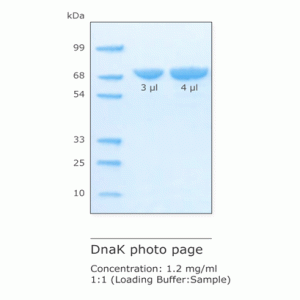T7 High Yield In Vitro Transcription Kit
¥1,308.62 – ¥3,902.01
Phage RNA polymerases are widely used for in vitro synthesis of RNA transcripts from DNA templates, which have a double-stranded promoter (at least 19 bases) upstream of the sequence to be transcribed.
| SKU | OPTIONS | 价格 | |
|---|---|---|---|
| T7HT-100 | 20 rxns | ¥1,308.62 | |
| T7HT-200 | 100 rxns | ¥3,902.01 |
- 描述
- 其他信息
- Documents
- Q&A
描述
Description:
Phage RNA polymerases are widely used for in vitro synthesis of RNA transcripts from DNA templates which have a double-stranded promoter (at least 19 bases) upstream of the sequence to be transcribed. T7 phage RNA polymerase has a high specificity for its respective promoter. Once T7 RNA polymerase binds to its double-stranded DNA promoter, it separates the two DNA strands, and uses the 3′ to 5′ strand as a template to synthesize a complementary strand at the end of the DNA template (run-off transcription) (Figure 1). The initiation of transcription is a rate-limiting step in in vitro transcript reactions. Elongation of the transcript is very fast and efficient.
Cloning vectors usually contain two or more separate phage promoters flanking a multiple cloning site. So either strand of the template can be transcribed from the promoter on the opposite strand. The T7 High Yield in vitro Transcription Kit can also be used to transcribe from DNA templates produced via PCR or synthetic DNA oligonucleotides.
Because RNA-RNA and RNA-DNA hybrids are more stable than DNA-DNA duplexes in solid base hybridizations, and single-stranded RNA probes are not depleted by rehybridization to a complementary probe strand, the T7 High Yield in vitro Transcription Kit can be used to incorporate isotopically labeled as well as nonisotopically modified nucleotides into RNA transcripts as probes for hybridization reactions, such as Northern and Southern blotting, slot or dot blotting, in situ hybridizations, and nuclease protection assays. If the RNA produced will be used as a probe to detect mRNA, it is important that mRNA-complementary (antisense) transcripts are synthesized. With custom supplied cap analog, fully functional capped mRNAs can be made through T7 High Yield in vitro Transcription reactions.
Applications:
- In vitro transcription
- In vitro translation
- Hybridization probes generation
- RNase protection assays
- RNA binding protein assays
- RNAi study
Components
The kit contains sufficient materials for 20 or 100 reactions at 20 μL total reaction volume.
20 rxns Components
20 μL T7 Enzyme Mix
20 μL ATP Solution (50 mM)
20 μL CTP Solution (50 mM)
20 μL GTP Solution (50 mM)
20 μL UTP Solution (50 mM)
20 μL 100 mM DTT
250 μL 10X Transcription Buffer
10 μL Control DNA Template (0.5 μg/μL)
1.5 mL Nuclease-free Water
100 rxns Components
100 μL T7 Enzyme Mix
100 μL ATP Solution (50 mM)
100 μL CTP Solution (50 mM)
100 μL GTP Solution (50 mM)
100 μL UTP Solution (50 mM)
100 μL 100 mM DTT
250 μL 10X Transcription Buffer
10 μL Control DNA Template (0.5 μg/μL)
1.5 mL Nuclease-free Water
Recommended Storage Condition: -20°C
Shipping Condition: Dry ice
Reference:
Schendorn ET and Mierindorf RC (1985). Nucleic Acids Res, 13,6223-6236
其他信息
| OPTIONS | 20 rxns, 100 rxns |
|---|
Manual & Protocols
MSDS & Certificates
The Q&A for this product will be available soon.





